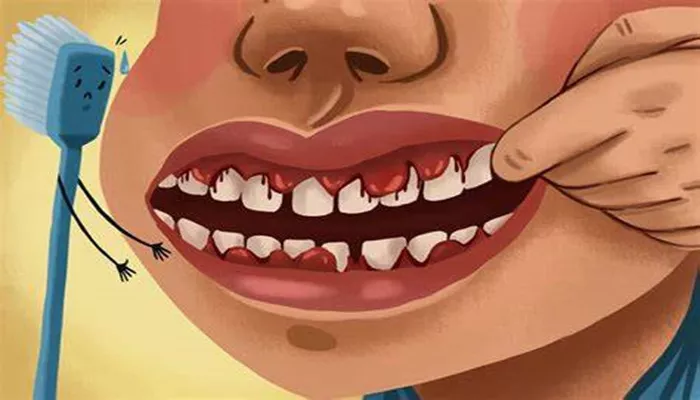Bleeding gums can be a distressing symptom that many individuals experience at some point in their lives. This condition often indicates underlying dental issues, such as gum disease or poor oral hygiene. Understanding the causes of bleeding gums, along with effective prevention and treatment strategies, is crucial for maintaining optimal oral health.
What Causes Bleeding Gums?
Bleeding gums can arise from various factors, including:
Gingivitis: The most common cause of bleeding gums is gingivitis, an inflammation of the gums caused by plaque buildup.
If not addressed, gingivitis can progress to more severe periodontal disease.
Periodontal Disease: This is a more advanced form of gum disease that can lead to tooth loss if untreated. Periodontal disease occurs when gingivitis is left untreated, causing the supporting structures of the teeth to deteriorate.
Poor Oral Hygiene: Inadequate brushing and flossing can lead to plaque accumulation, which irritates the gums and causes bleeding.
Hormonal Changes: Conditions such as pregnancy, menstruation, or menopause can cause hormonal fluctuations that may make gums more susceptible to bleeding.
Medical Conditions: Certain systemic diseases like diabetes or blood disorders (e.g., hemophilia) can also contribute to gum bleeding.
Medications: Some medications, especially anticoagulants or those that affect blood clotting, can increase the likelihood of bleeding gums.
How to Prevent Bleeding Gums
Preventing bleeding gums primarily revolves around maintaining good oral hygiene and addressing any underlying health issues. Here are effective strategies:
1. Maintain Proper Oral Hygiene
Brushing: Brush your teeth at least twice a day using fluoride toothpaste. Ensure you use a soft-bristled toothbrush to avoid irritating your gums.
Flossing: Daily flossing helps remove plaque and food particles between teeth where your toothbrush cannot reach.
Mouthwash: Use an antiseptic mouthwash to help reduce plaque and prevent gum disease.
2. Regular Dental Visits
Schedule dental check-ups at least twice a year for professional cleanings and examinations. Your dentist can identify early signs of gum disease and recommend appropriate treatments.
3. Healthy Diet
A balanced diet rich in vitamins and minerals, particularly vitamin C and calcium, supports gum health. Foods such as fruits, vegetables, whole grains, lean proteins, and dairy products are beneficial.
4. Avoid Tobacco Products
Smoking or using tobacco products can significantly increase the risk of gum disease and bleeding gums. Quitting tobacco improves overall oral health.
5. Manage Stress
High stress levels can adversely affect your immune system, making it harder for your body to fight off infections, including those affecting your gums.
Treatment Options for Bleeding Gums
If you are experiencing persistent bleeding gums despite following preventive measures, it is essential to seek professional dental care.
Treatment options may include:
1. Professional Cleaning
A dental hygienist will perform a thorough cleaning to remove plaque and tartar buildup that contributes to gum inflammation.
2. Scaling and Root Planing
This deep-cleaning procedure involves removing plaque and tartar from below the gum line (scaling) and smoothing out rough spots on the roots of teeth (root planing) to help the gums reattach to the teeth.
3. Antibiotics
In cases of severe infection or periodontal disease, your dentist may prescribe antibiotics to help control bacterial growth.
4. Surgical Treatments
For advanced periodontal disease, surgical options such as flap surgery or bone grafts may be necessary to restore gum health.
5. Management of Underlying Conditions
If systemic health issues contribute to bleeding gums (e.g., diabetes), managing these conditions through medication or lifestyle changes is crucial.
Home Remedies for Minor Cases
For minor cases of bleeding gums due to gingivitis or irritation, several home remedies may provide relief:
Saltwater Rinse: Mix one teaspoon of salt in a glass of warm water and rinse your mouth with it several times a day to reduce inflammation.
Hydrogen Peroxide Rinse: A diluted solution (equal parts hydrogen peroxide and water) can help kill bacteria in the mouth.
Aloe Vera Gel: Applying aloe vera gel directly onto the gums may help soothe inflammation and promote healing.
Turmeric Paste: Turmeric has anti-inflammatory properties; mixing it with water to create a paste can be applied to the gums for relief.
When to See A Dentist
It is essential to consult a dentist if you experience:
Persistent bleeding that does not improve with home care.
Swelling or redness in the gums.
Pain while chewing or brushing.
Loose teeth or changes in bite alignment.
Conclusion
Bleeding gums should not be ignored as they often signal underlying dental issues that require attention. By maintaining proper oral hygiene practices, scheduling regular dental visits, and addressing any contributing health factors, individuals can significantly reduce their risk of developing gum disease and experiencing bleeding gums. If symptoms persist despite these efforts, seeking professional dental care is crucial for effective treatment and prevention of further complications.
Related topics:

